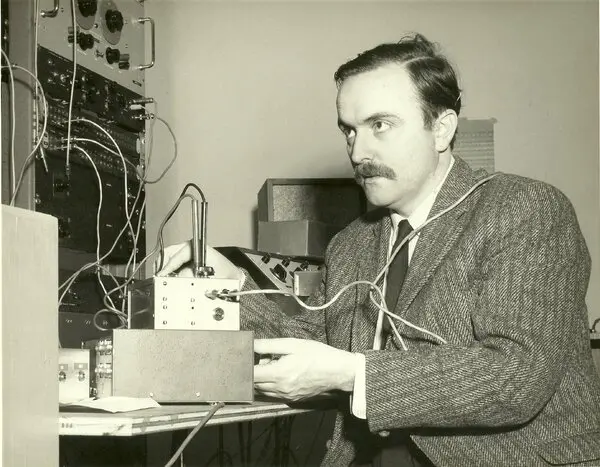
Artificial “Brain” Grown From Composer’s Blood is Making Music After His Death
The future is now. Alvin Lucier died in 2021, yet he is still making music. How, you ask? A team of artists and scientists have joined forces to create a lab-grown ‘mini-brain’ made from the blood cells of the American experimental composer. His resurrected brain is currently making music at an exhibition in Australia.
The project is known as Revivification and is hosted at the Art Gallery of Western Australia in Perth. Admission is free until August 3rd. Lucier led the way in neurological sound generation. His 1965 work ‘Music for Solo Performer’ made him the first composer to use brainwaves to make music. The video and experience feel way ahead of its time.
The Revivification team began talking to Lucier in 2018, and he eventually agreed to donate his blood in 2020. At age 89, he was sadly suffering from Parkinson’s disease. He met with the team comprising artists Guy Ben-Ary, Matt Gingold, and Nathan Thompson, and neuroscientist Stuart Hodgetts, every night over Zoom.
The process involved advanced neuroscience, reprogramming his white blood cells into stem cells, which were then transformed into 3D cell structures that imitate brain activity known as cerebral organoids. These organoids are now inside a sculpture which houses 20 brass plates that are connected to the two ‘in vitro brains’. The Guardian reports:
“Importantly, Lucier’s organoids don’t just produce sound – they also receive it. Microphones in the gallery pick up ambient noise, including human voices and the resonant tones of the plates, and that audio data is converted into electrical signals and fed back into the brain.”
This has raised ethical questions about the use of artificial intelligence. It doesn’t seem like it will be very long before it is available to the public in various ways.



